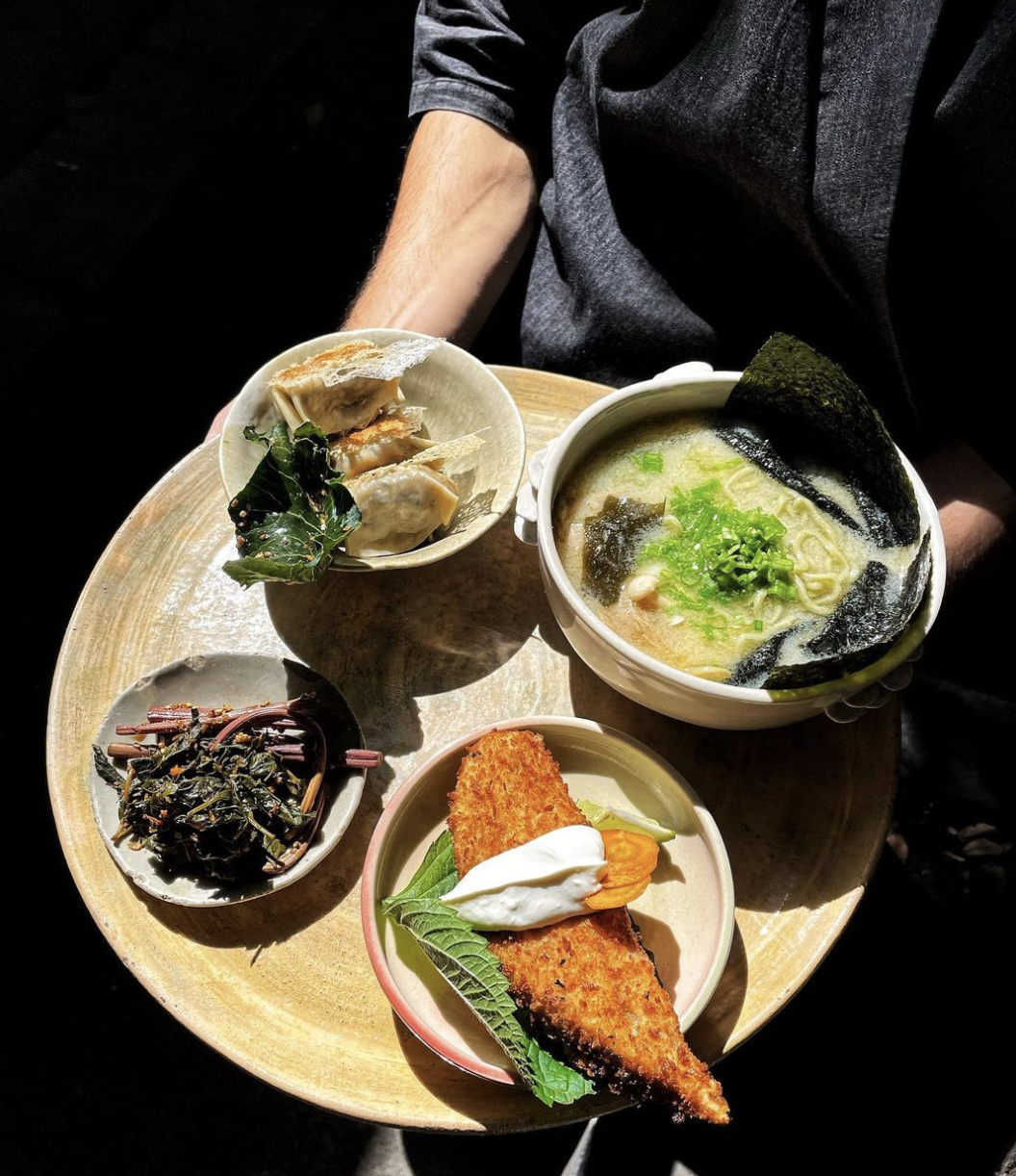Nuevo Vegano: LATINX PLANT BASED ROOTS
Ivan Castro’s La Bartola in Toronto showcases the Mexico City-native’s love for traditional Mexican spices and sauces coupled with traditional plant-based recipes such as this smooth mole with notes of cacao, guava, pine nuts, Oaxacan chipotle, almonds, plums and it gets a hint of smoke when the dish flambé with mezcal.
In recent years, a fresh and exciting movement has been taking root across Latin America and among the Latinx community in the United States - the rise of "Nuevo Vegano." This movement represents a dynamic fusion of tradition, ritual, and modern wellbeing, as it transforms the way we perceive and savor plant-based foods in Latin American and Latinx cultures.
Embracing Tradition
Latin American cuisine has always had a strong tradition of plant-based foods, from hearty bean stews to the vibrant flavors of salsas and guacamole. Many traditional dishes are inherently vegetarian or vegan, rooted in indigenous practices that prioritize the use of local, seasonal ingredients. By revisiting these ancient culinary traditions, Nuevo Vegano chefs are celebrating their cultural heritage while embracing a sustainable and meaningful approach to eating.
Chui in Buenos Aires taps into Pre-Columbian recipes and rituals such as this wood-fired lentil stew with lentils.
Rituals and Plant-Based Traditions
Food has long held a central place in Latin American cultures, often associated with rituals and celebrations. As Nuevo Vegano emerges, these rituals are adapting to include plant-based options. For example, Dia de los Muertos altars may feature offerings of vegan tamales and pan de muerto. This evolution of tradition showcases the flexibility of Latinx cultures, welcoming new practices while preserving their rich history.
Latinx Chefs Leading the Way
In the United States, a growing number of Latinx chefs are making significant contributions to the Nuevo Vegano movement. These chefs are infusing their culinary creations with the flavors and techniques of their heritage while experimenting with innovative plant-based ingredients. Chefs like Enrique Olvera and Daniela Soto-Innes are pioneers in reimagining Mexican cuisine, offering vegetarian and vegan twists on beloved classics, such as plant-based mole and nopales tacos.
Modern Focus on Wellbeing
The rise of Nuevo Vegano also aligns with a broader global shift toward wellness and mindful eating. Latin American and Latinx communities are increasingly recognizing the health benefits of reducing meat consumption and embracing whole, plant-based foods. This modern focus on wellbeing extends beyond individual health to encompass environmental sustainability and ethical considerations.
Restaurants at the Forefront
Across Latin America and in Latino neighborhoods throughout the U.S., a wave of vegetarian and vegan restaurants is gaining popularity. These establishments are drawing on traditional flavors and techniques to craft inventive dishes that cater to diverse palates. Whether it's a vegan arepa truck in Miami or a vegetarian taquería in Mexico City, these restaurants are at the forefront of the Nuevo Vegano movement, offering accessible and delicious plant-based options.
We are Los Loosers in Mexico City offers a singular mix of Mexican Pre-Columbian plant-based dishes infused with global inspirations from travels.
Nuevo Vegano is more than just a culinary trend; it's a celebration of Latin American and Latinx cultures' deep-rooted connection to plant-based foods. Through a blend of tradition, ritual, and modern focus on wellbeing, this movement is redefining how we experience and appreciate vegetarian and vegan cuisine. As Latin American and Latinx chefs continue to innovate and share their passion for plant-based fare, they not only contribute to the evolving culinary landscape but also promote a healthier, more sustainable, and more culturally rich way of eating.



